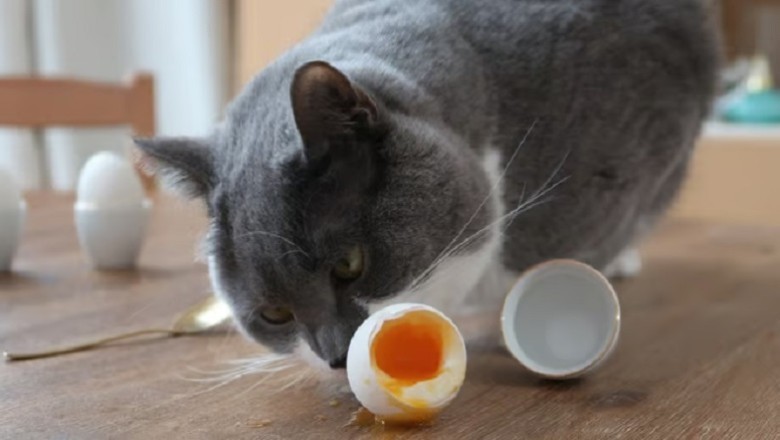Can Cats Eat Eggs? A Complete Guide to Feeding Your Feline Friend Eggs
Are you considering adding eggs to your cat's diet but unsure about the safety and benefits? The good news is, yes! Cats can indeed consume cooked eggs, providing a nutritious boost to their meals. However, there are essential precautions to keep in mind.
Nutritional Benefits of Eggs for Cats
Eggs are a powerhouse of nutrients for cats, packed with high-quality proteins, essential amino acids, and vital vitamins and minerals. Proteins from eggs support tissue repair, immune function, and overall health. The presence of vitamins B12 and D, along with minerals like iron and selenium, further enhance the nutritional profile of eggs for our feline friends.
Safety Precautions for Feeding Eggs to Cats
Before introducing eggs into your cat's diet, it's crucial to follow these safety guidelines:
-
Cooking Eggs: Raw eggs may harbor harmful bacteria such as salmonella. Always cook eggs thoroughly to eliminate these risks before offering them to your cat.
-
Moderate Quantities: While eggs are nutrient-dense, cats are primarily carnivorous. Limit egg consumption to small amounts and occasional treats to maintain a balanced diet.
-
Allergies: If your cat has known allergies, consult your veterinarian before introducing eggs to prevent adverse reactions.
-
Shell Removal: Discard eggshells to prevent choking hazards or injuries to your cat.
How to Safely Feed Eggs to Your Cat
To ensure your cat enjoys eggs safely and nutritiously, follow these steps:
-
Cooking Eggs: Always hard-boil eggs to eliminate any harmful bacteria.
-
Preparation: Crush or finely chop cooked eggs to aid digestion for your cat.
-
Combining with Regular Food: Mix a small portion of cooked egg with your cat's regular food to maintain dietary balance.
-
Observation: Monitor your cat closely after introducing eggs for potential allergic reactions or digestive issues.
Understanding Egg Yolks for Cats
Egg yolks are packed with valuable nutrients, including proteins, vitamins (A, D, E, B12), and essential minerals (iron, zinc). While egg yolks can be beneficial for your cat's diet, it's essential to exercise caution.
Cooked egg yolks are recommended to avoid the risks associated with raw eggs, such as bacterial contamination and potential nutrient interference. A small serving of cooked egg yolk as a treat can offer health benefits and contribute to a well-rounded diet for your cat.
By following these guidelines and practicing moderation, you can safely incorporate eggs into your cat's nutrition regimen, providing a tasty and nutritious addition to their meals.





















Comments
0 comment